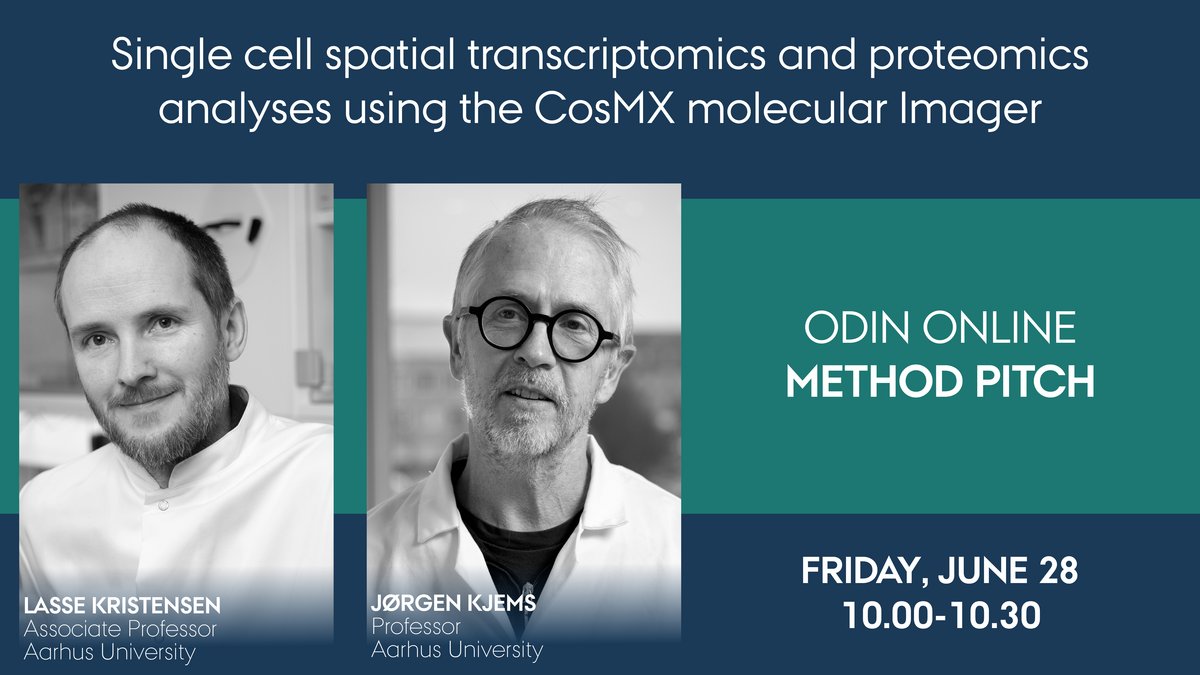ODIN online pitches 2024
ONLINE PITCHES FROM THE JUNE 2024 CALL ROUND
Below you will find a list of the online pitches from the ODIN funding call round in 2024. There are pitches from academic researchers as well as both small and large companies.
For most pitches, you can find more information and a recording of the pitch. Otherwise, we encourge you to take a look at our online matchmaking platform WorldLabs for more information on each of the pitches - this is where all ODIN project ideas must be posted to be eligible to apply for funding.
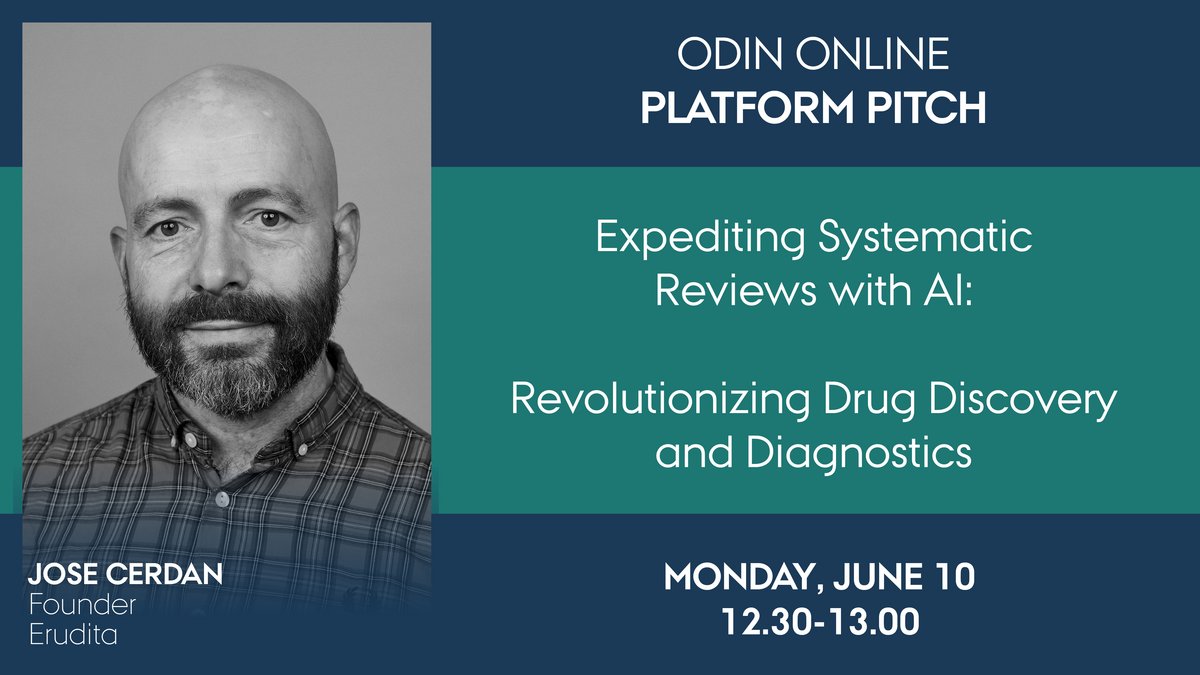
"With Erudita's AI-powered platform, we are transforming the landscape of drug discovery, diagnostics, and medical technology development by streamlining systematic reviews, ultimately accelerating innovation and improving patient outcomes," says Jose Cerdan, who is the founder of Erudita.
If you did not get a change to watch the pitch, you can access Jose Cerdan's pitch here.
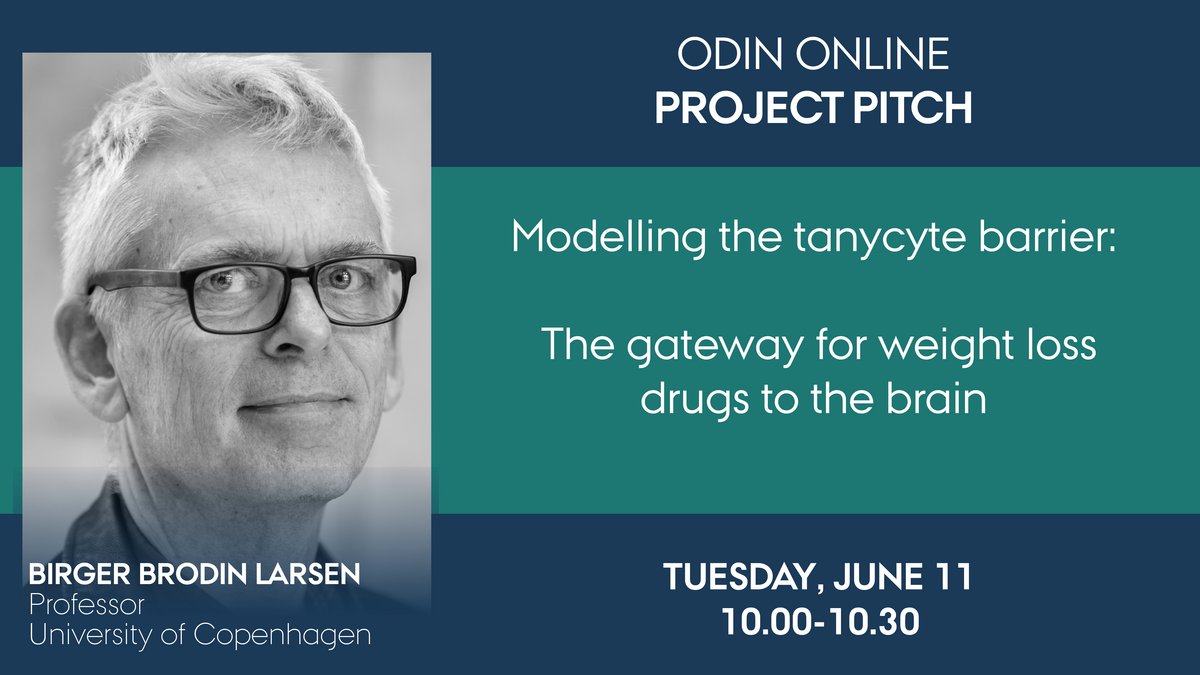
”If we can find an easy way to predict how metabolism-regulating drugs are taken up in the brain, we have come far,” says Birger Brodin Larsen.
Together with Morten Schallburg Nielsen from Aarhus University and international collaborators, Birger is proposing to set up a cell system in the lab, which can be used to predict the uptake of novel peptide drug compounds. “We are aiming to create a cell model, which can be used to investigate whether new matabolism-regulating drugs can enter the brain or not.”
On Tuesday 11 June, Birger pitched the project idea to explain in more detail what it is about. He also explained what types of input, the project team is looking for. You can read the abstract for the project pitch here
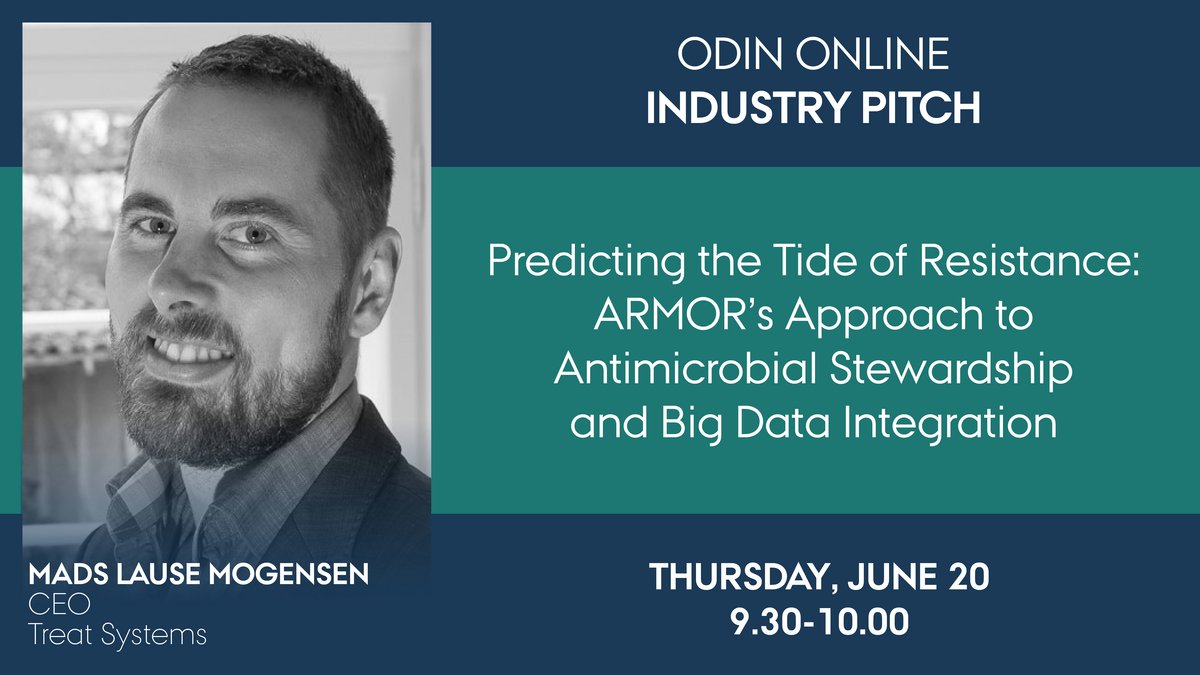
”In 2025, multidrug-resistance bacteria are expected to cause more deaths than cancer. This calls for urgent actions,” says Mads Lause Mogensen, CEO of Treat Systems.
“At Treat Systems, we are dedicated to improve antibiotic treatment through software solutions, and therefore we propose a project on this topic using the Antimicrobial Resistance Modeling and Outcome Research (AMOR) approach, where we aim to predict the tide of resistance through antimicrobial stewardship and big data integration.”
Read the full abstract for the pitch here or watch the recorded pitch to find out more
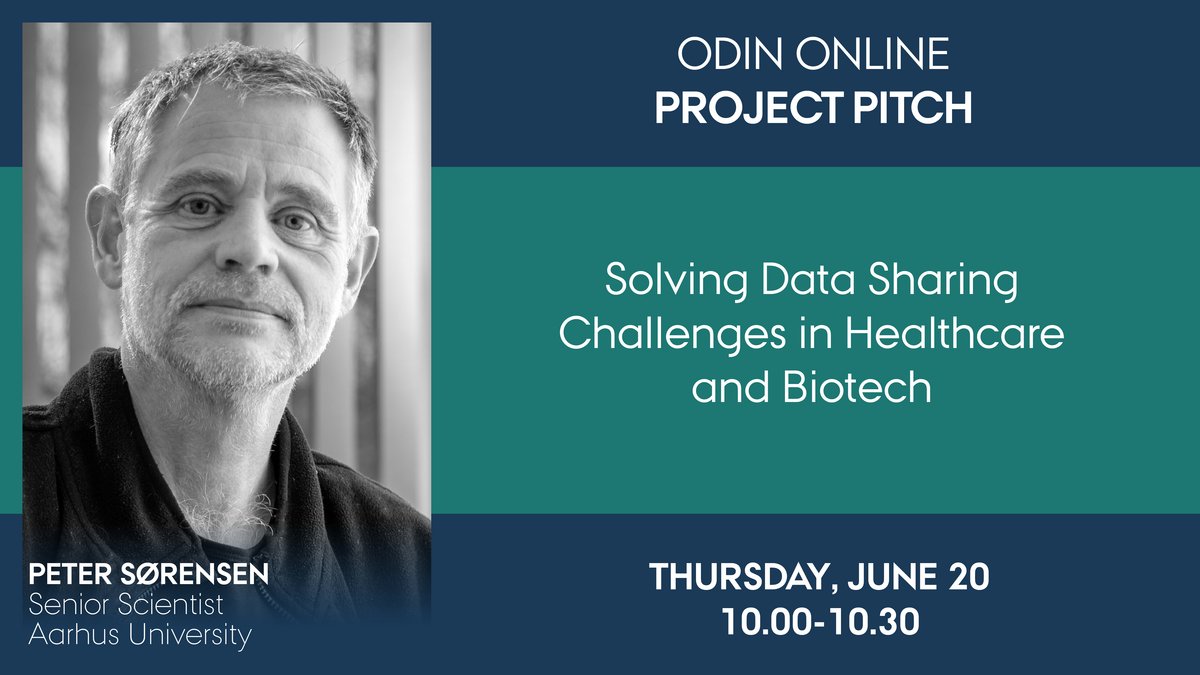
”Advancing research within healthcare and biotech requires data. But data can be hard to get – and difficult to share for many reasons. Our aim is to enable collaborators from both academia and industry to share insights without giving away their data,” says Peter Sørensen. He proposes to use statistical machine learning algorithms to make data sharing easier. “With our statistical machine learning algorithms, we will address the current challenges in datasharing, thereby enabling organizations and collaborators to maximize the value of their data. This will help facilitate the discovery of new biomarkers and improving disease risk stratification.”
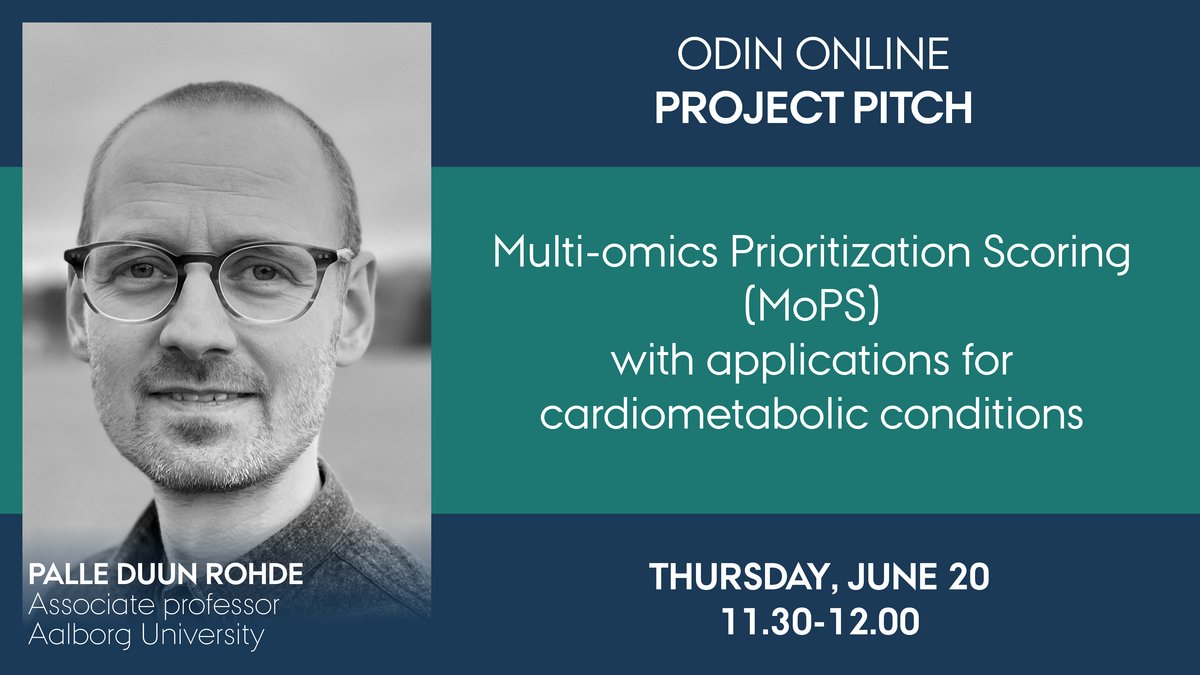
“Stratification of patients with cardiometabolic conditions is very important,” says Palle Duun Rohde. “It's time to move beyond genetic profiles and harness the full potential of omics data for better prevention, diagnosis, and treatment. Therefore, we introduce a novel approach that integrates multi-omics. We call it MoPS - Multi-omics Prioritization Scoring– which also provides better risk stratification and assist researchers in uncovering new biomarkers for disease.”
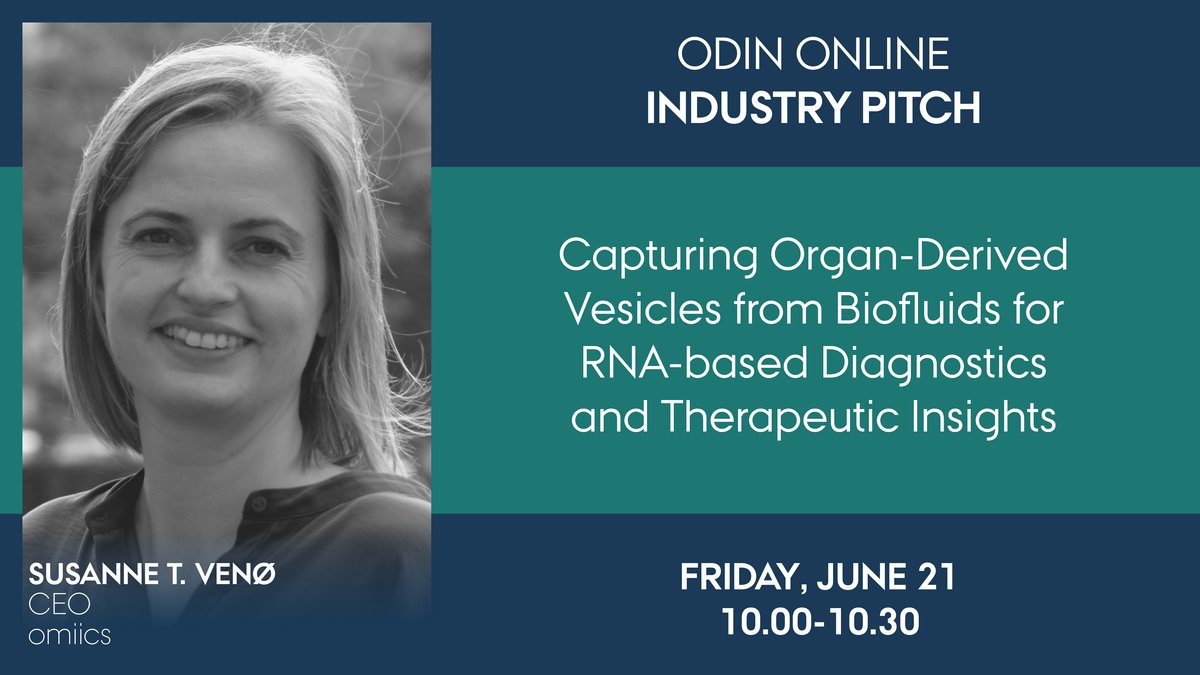
With a specialization in ultra-low input material, omiics has established efficient protocols for both isolating extracellular vesicles (EVs) and quantifying mRNA from various cell-free biofluids such as blood-plasma, serum, cerebrospinal fluid, bile, urine, and saliva.
At this pitch, Susanne Venø will explain, how omiics aims to further develop these methods by isolating a organ-specific sub-population of biofluid EVs, thereby enabling monitoring of organ-specific mRNA changes in a simple blood sample.
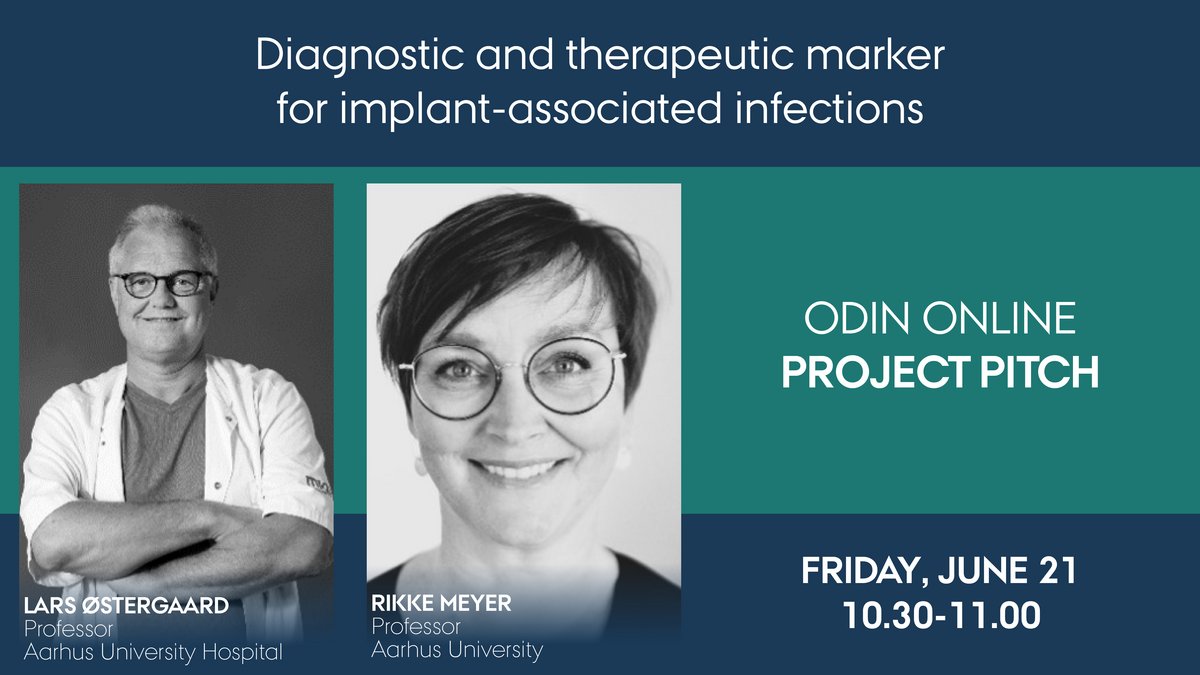
“Biofilm-specific diagnostic and therapeutic marker will pave the way for resolving implant-associated infections,” says Rikke Meyer, who is proposing the project ‘Diagnostic and therapeutic marker for implant-associated infections’ in the first call round of ODIN.
“Implants improve the quality of life for millions of patients every year. But they are also prone to some of the most difficult-to-treat bacterial infections. This is exactly what we aim to address in the proposed ODIN project,” says Lars Østergaard, who is proposing the project with Rikke. “If the project succeeds, it will benefit both the patients and the healthcare system because many patients need additional surgery or lengthy antibiotic treatment in the hospital,” he explains.
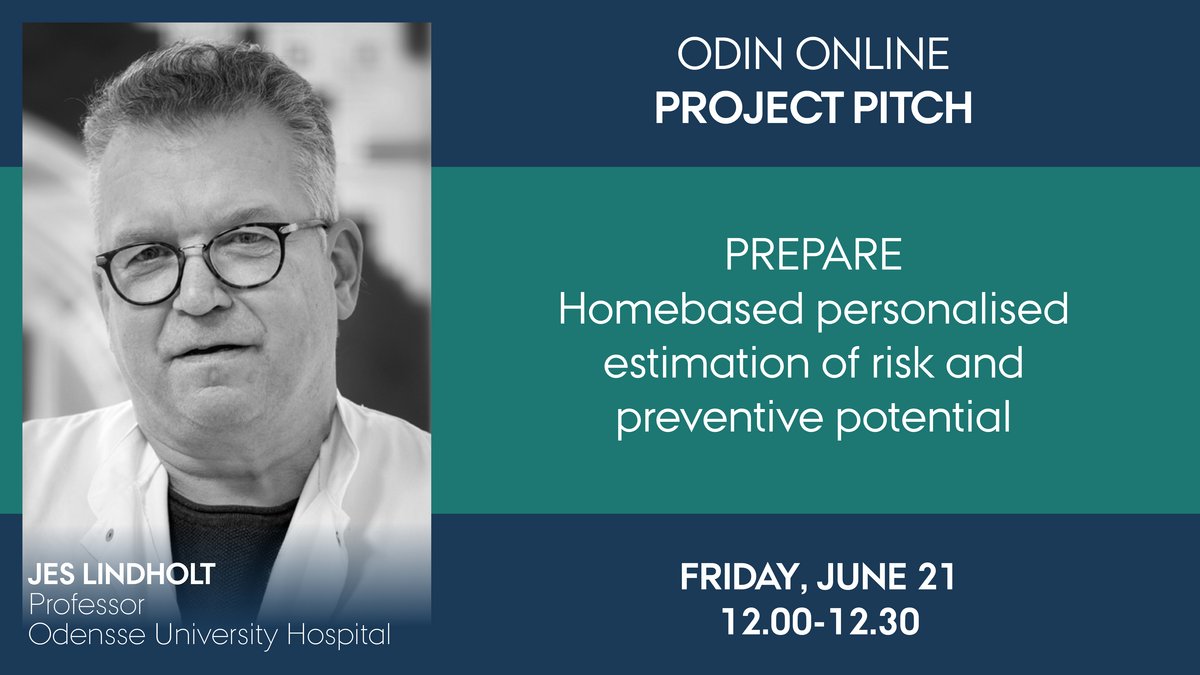
”We aim to develop AI-based precision tools for estimating personal risk and preventive potential for a range of different diseases,” says Jes Lindholt. “We are looking for collaborations from industry to can enrich the bioinformation currently available in our team. For instance, we would like to obtain information on specific CMD biomarkers, epigenetics, plasma-transcriptomics, metabolomics, and plasma-microbiotome.”
You can watch the recording of Jes' pitch on YouTube or read the full abstract for the pitch here
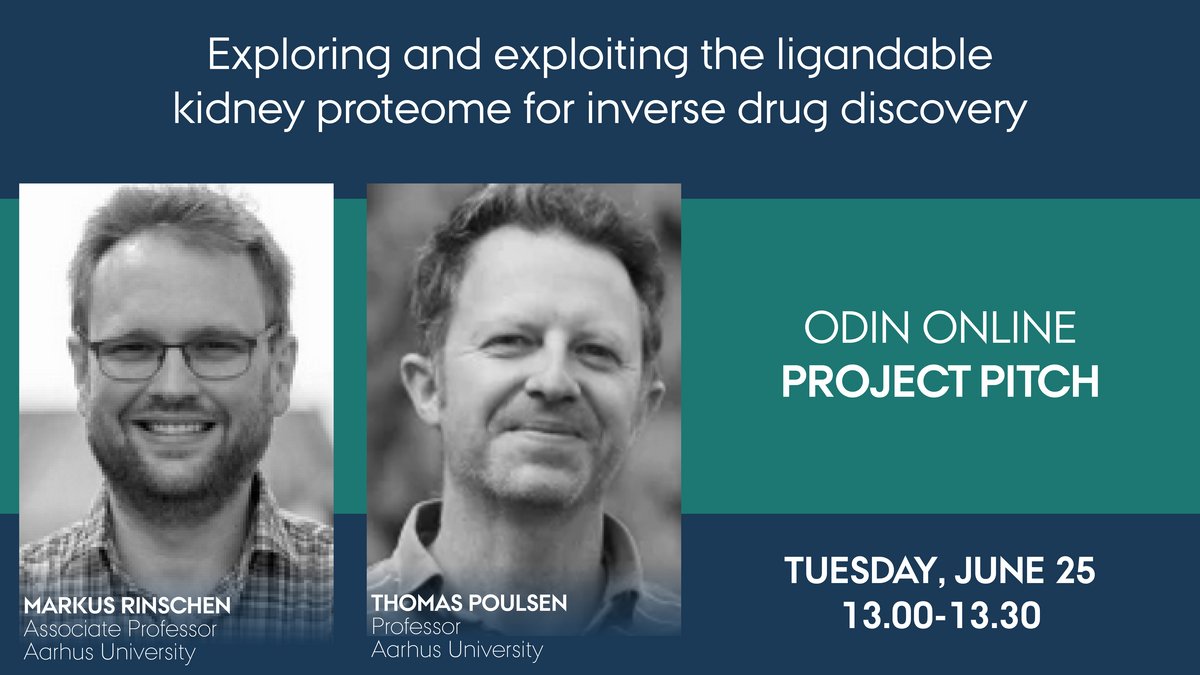
“We propose to leverage cutting-edge chemistry and advanced chemical proteomics to conduct - for the first time to the best of our knowledge - inverse drug discovery focused on relevant drug targets in the tubule and podocytes of the kidney”, says Markus Rinschen. Together with Thomas Poulsen, he is proposing the project ‘Exploring and exploiting the ligandable kidney proteome for inverse drug discovery’ in ODIN
“The unique combination combining chemical biology and omics-based mechanistic kidney research in an open space may be the first step to drug the undruggable kidney proteome,” elaborates Thomas Poulsen.
You can watch Thomas and Markus' pitch presentation right here, if you didn't get to see the live version, or read the full abstract for the pitch here
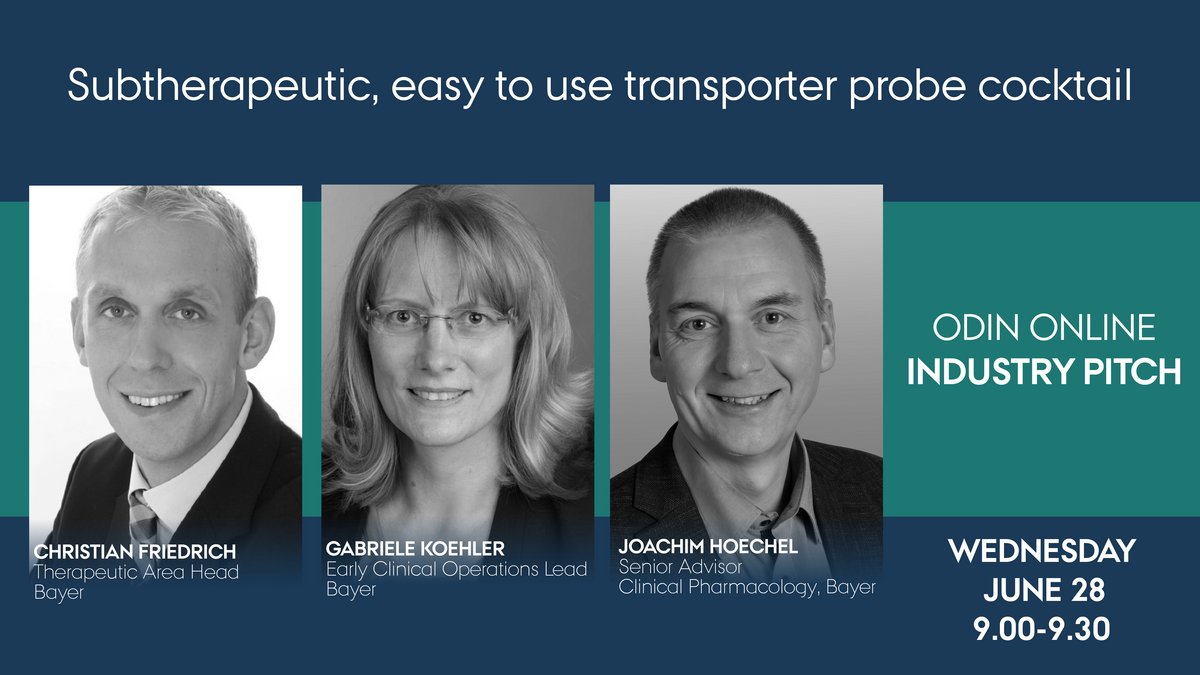
“Drug-drug interaction studies investigating the effect of new drugs on other marketed drugs are required by regulatory agencies. This currently a laborsome & expensive task and therefore, we would like to validate a subtherapeutic dose cocktail in a clinical Phase I study,” says Christian Friedrich from Bayer. Together with his colleagues from Bayer Gabriele and Joachim Hoechel, he propose a project in ODIN.
“We have already completed the formulation selection of the subtherapeutic dose cocktail’s pharmacologically inactive doses. This validation study could be used for all subsequent development programs across the pharma industry and it could help mitigate the need for separate drug interaction studies with animpact in terms of both ecological footprint, budget and prevention of unnecessary exposure of healthy volunteers,” Christian explains.
You can read the full abstract for the pitch here or watch the recorded pitch to learn more.
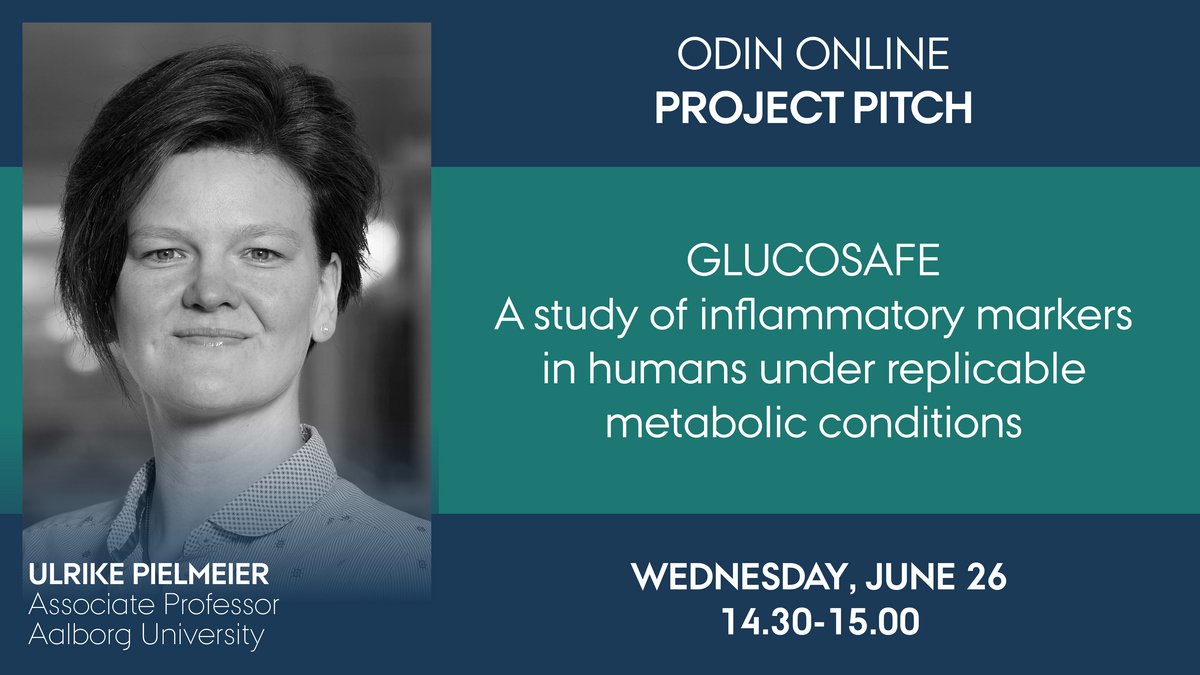
”Inflammatory marker diagnostics are challenging," says Ulrike Pielmeier. "The difficulties stem from the non-specificity of markers, individual variability, the influence of external factors, the dynamic nature of inflammation, interference from comorbidities, the complexity of multiple markers, and other challenges. Let’s try out a tool together that addresses some of these challenges and offers a new way to studyinflammatory markers in patients with critical illness, where cofactors (nutrition, insulin treatment, steroid treatment, physiological differences) are under full control.”
You can watch a recording of Ulrike's pitch here or read the full abstract for the pitch

”We need expertise in generating nanoparticles. Therefore, we provide a platform allowing testing of test compounds that fail to be administered systemically,” says Jane Stubbe.
“Our setup can be applied to identify unique targets in human atherosclerotic plaques and other artery-related disease. In the future, we expect that these nanoparticles may be used to deliver epigenetic modulators like miRNAs.”
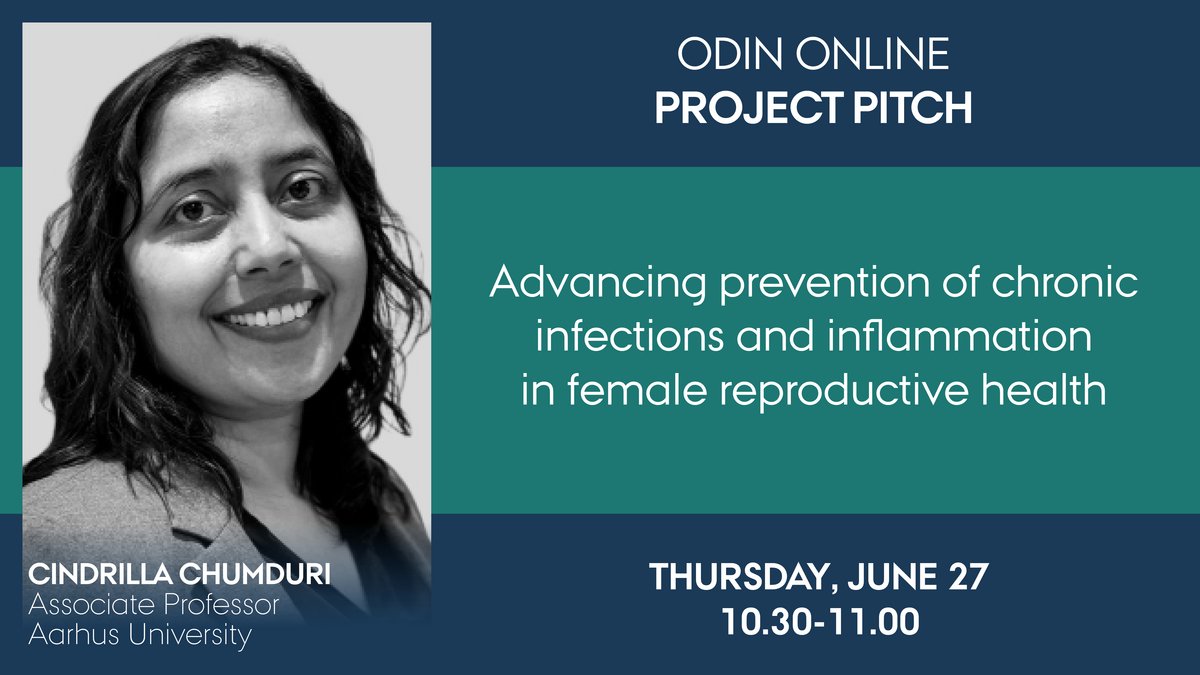
”Advancing prevention of chronic infections and inflammation in female reproductive health is crucial," states Cindrilla Chumduri. She is at the forefront of exploring the dynamics of metaplastic sites prone to infections by utilizing cutting-edge single-cell and spatial omics alongside developing 3D organoid co-culture systems. “The goal of the proposed ODIN project is to identify key biomarkers and assess their therapeutic potential, aiming to significantly reduce chronic infections, enhance systemic inflammatory health outcomes, and combat antibiotic resistance. In the project group, we are actively seeking industry partners to help us revolutionize diagnostic and therapeutic strategies in women's health,” she elaborates.
The full abstract for the pitch is available here and you can watch (or rewatch) the recorded pitch here
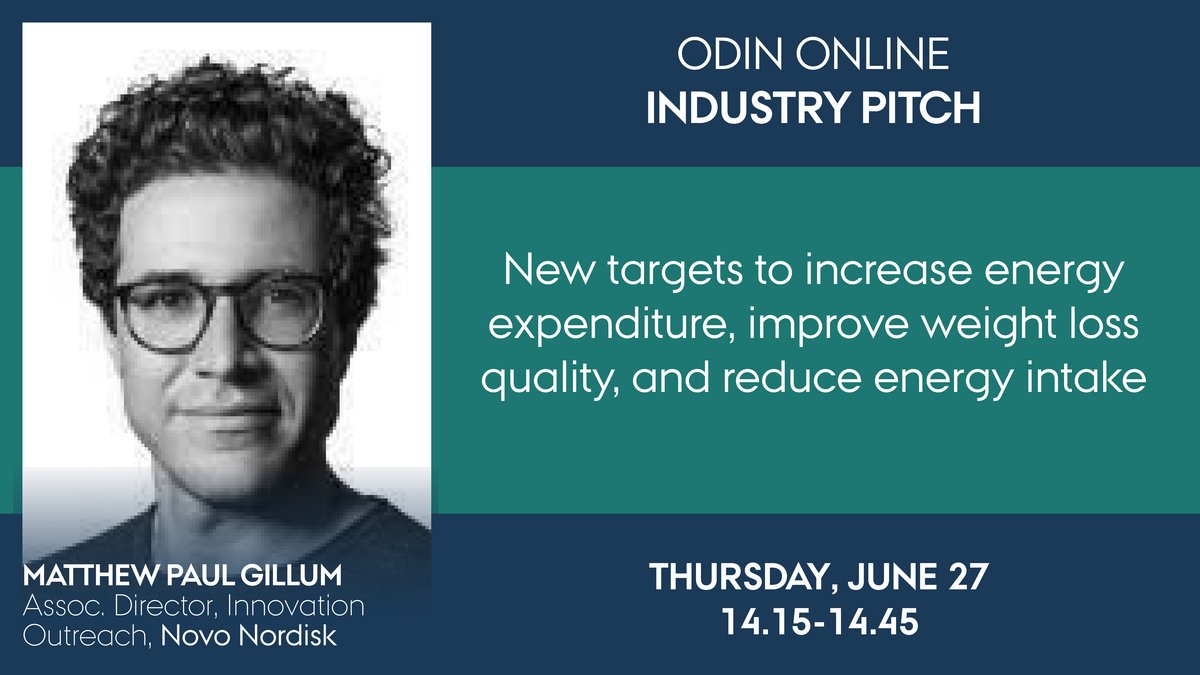
Watch Matthew Gillum pitch the Novo Nordisk challenge on obesity via this link.
See the pitch on diabetes below
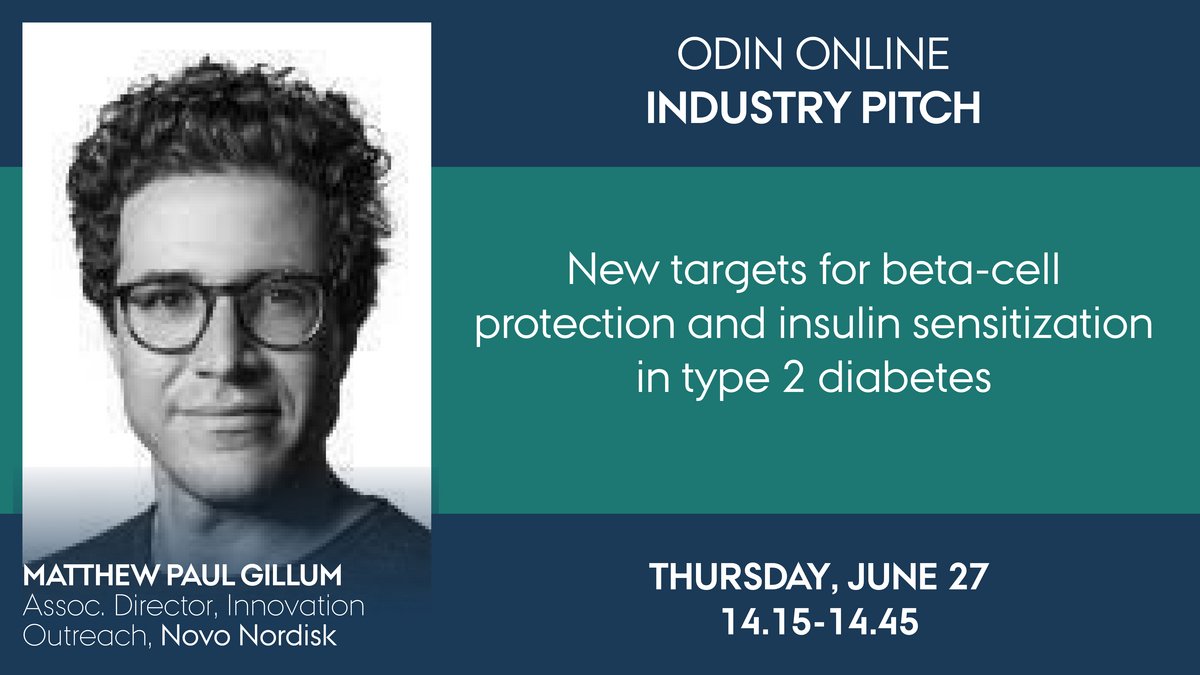
Here you can watch Matthew Gillum pitch Novo Nordisk's challenge on diabetes.
See the pitch on dobesity above
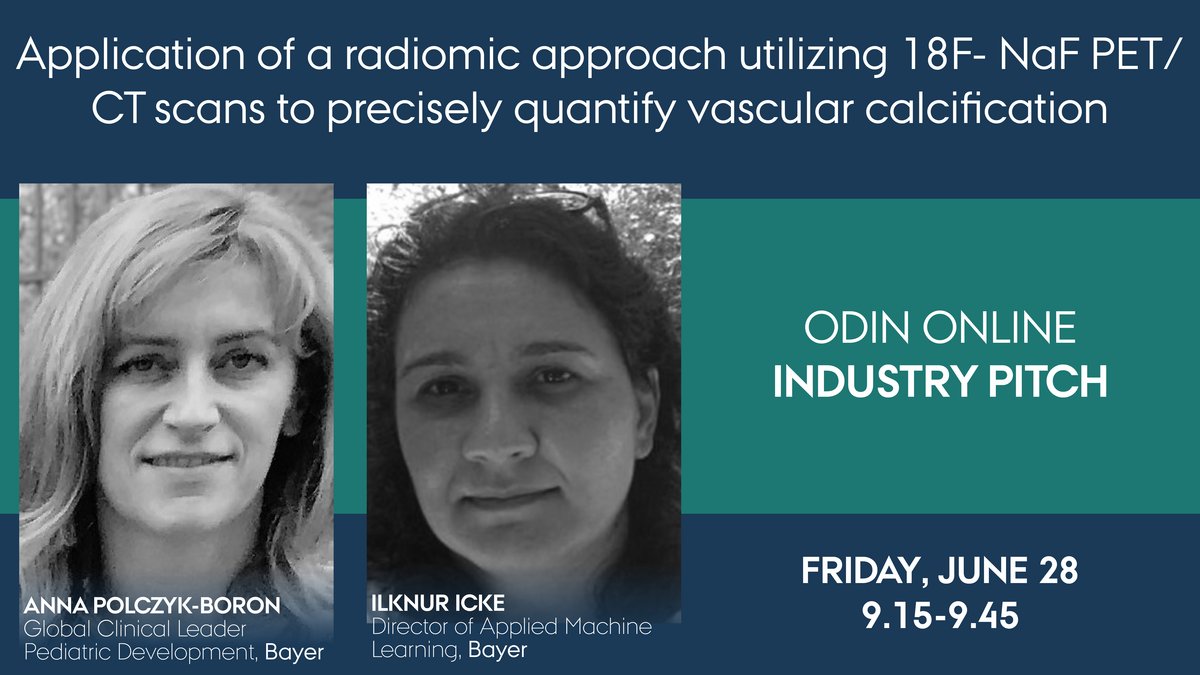
In the cooperation with NIH, we aim to validate and further develop a quantitative diagnostic and prognostic molecular imaging biomarker for applications in diseases with vascular calcifications. The idea is based on the radiomics to be applied on the set of hyperphosphatemic familial tumoral calcinosis (HFTC) patients’ data NIH had mapped to track the activity of the vascular microcalcifications. We are looking for a collaboration for validation of such a biomarker for further application in patients with both rare and common diseases with ectopic calcifications and radioisotope programs.
You can read the full abstract for the pitch here
Acknowledgement:
Bayer team presenting the work being done in cooperation with NIH NIDCR, Bethesda, MD, US and based on the NIH NIDCR data under the leadership of Dr. Michael Collins
"The cosMX spatial molecular Imager can be used for a wide range of tissue types (e.g, brain and colon) to analyze healthy as well as pathological states (e.g., cardiovascular diseases and cancer) for several species (e.g., human and mouse). Samples can be both formalin-fixed paraffin-embedded (FFPE) or fresh frozen. We would like to collaborate on any ODIN project where this technology would be useful." says Lasse Kristensen and Jørgen Kjems.
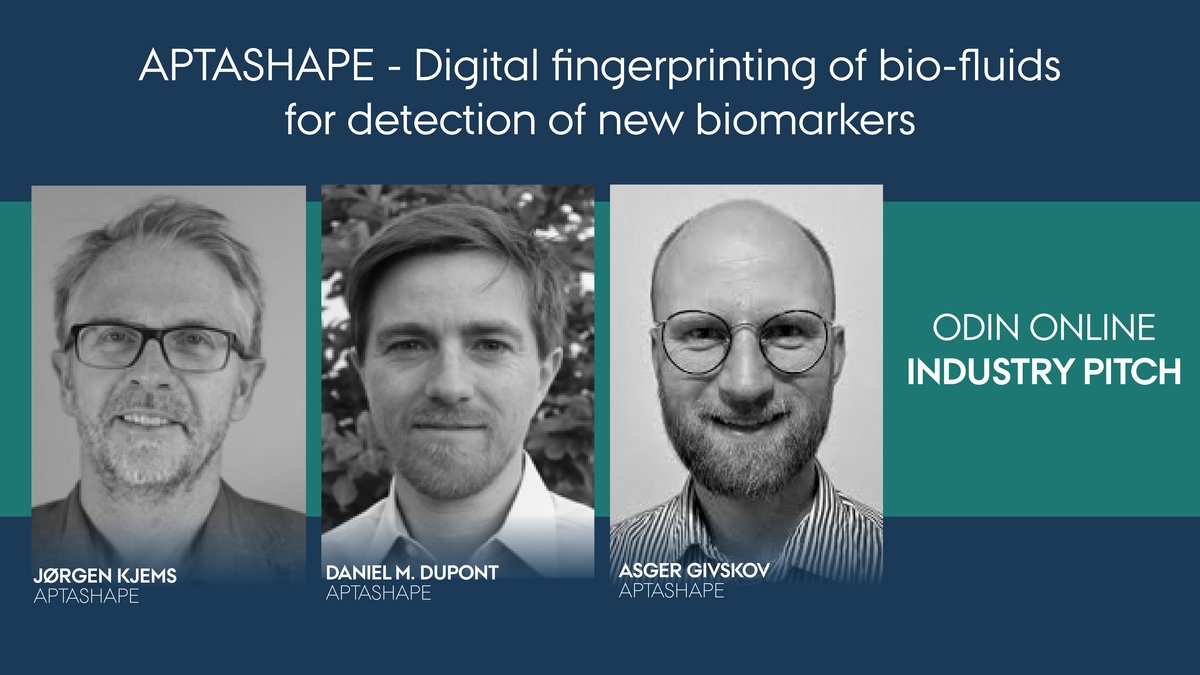
"We offer a screening technology, which translates the molecular signature of proteins in bio-fluids into a digital fingerprint using billions of 'chemical antibodies' called aptamers" says Asger Givskov Jørgensen.
In this pitch, which you can watch here, Asger presented the APTASHAPE company and their method which can be used in many different settings and bio-fluids.
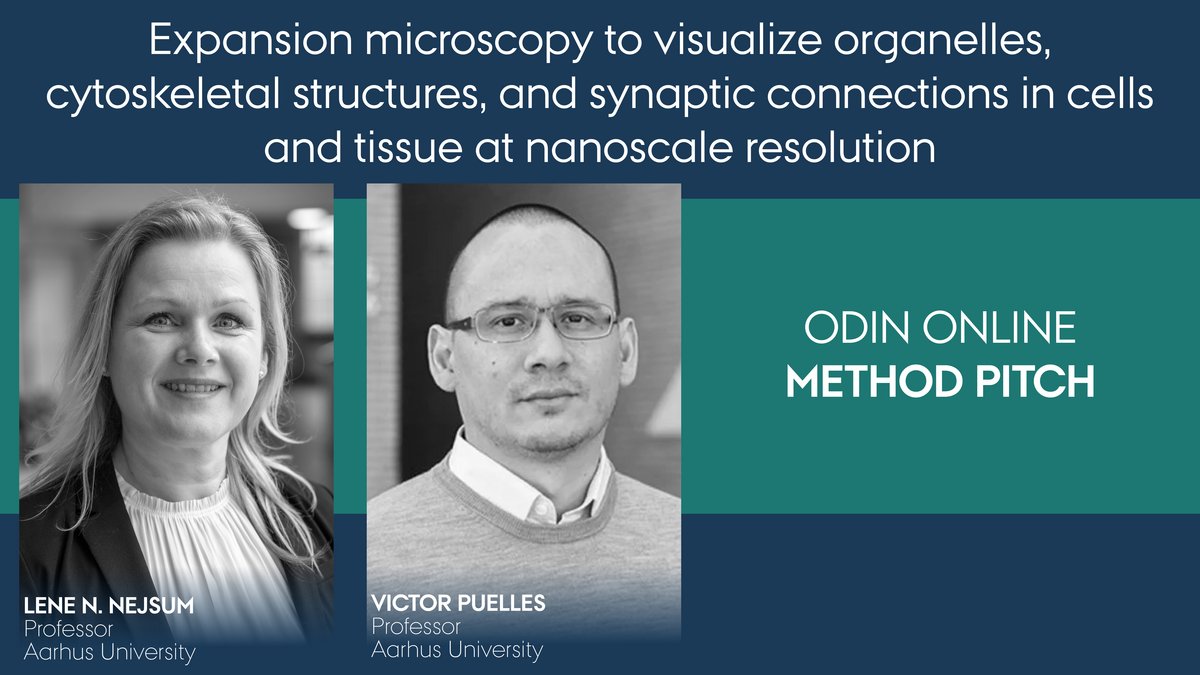
"Expansion microscopy (ExM) is an innovative imaging technique that significantly enhances the resolution of conventional light microscopy by physically expanding biological specimens", says Lene Niemann Nejsum and Victor Puelles and continue: "We are eager to collaborate with partners from the pharmaceutical industry and academia on projects where this technique can be applied, leveraging our combined expertise to advance scientific discoveries and therapeutic innovations."
You can watch the recorded pitch to find out more about the ExM method.
